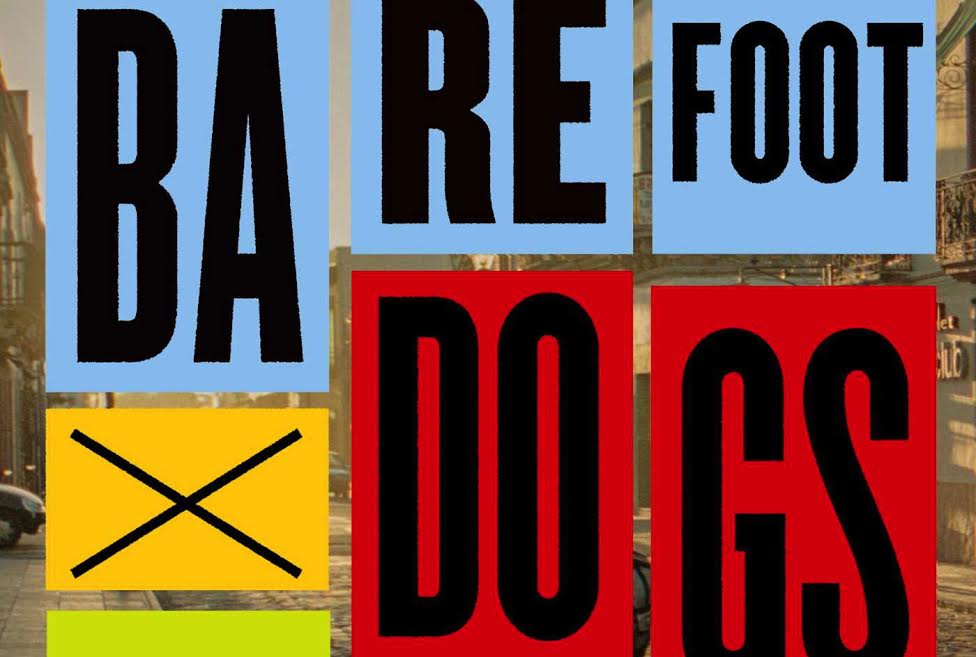
The Observer Review: Barefoot Dogs, by Antonio Ruiz-Camacho
Antonio Ruiz-Camacho will present Barefoot Dogs on March 10 in Austin, March 11 in San Antonio, and March 12 in Houston.
The “barefoot” in the title of Antonio Ruiz-Camacho’s debut story collection might trigger expectations of earnest evocations of poverty, rootlessness, uncertain identity and loss—themes that have long been staples of U.S. Latino literature. The wealthy Mexico City socialites brought masterfully to life in Barefoot Dogs, however, are more characteristic of a Latin American literary tradition largely dominated by urban elites. With deftness and nuance, Ruiz-Camacho, a 2014 Dobie Paisano Fellow who lives in Austin, captures the flawed but fascinating humanity of the extended Arteaga family: five children and seven grandchildren of kidnapped family patriarch José Victoriano.
In the interconnected stories of Barefoot Dogs, this kidnapping functions first and foremost as the catalyst for an Arteaga family exodus from Mexico City. As one displaced daughter explains, “We never saw him again. We all had to leave. We didn’t know what could happen with us, who could be next.” Readers may wonder about the possibility of cartel involvement, the fallout of globalization, and the broader social, economic and political disparities that may be in play, but none of these realities registers to the Arteagas. Even in exile, theirs is a relatively charmed existence. Unlike Mexican immigrants driven north by more quotidian hardships, these scattering family members have no difficulty obtaining legal access to Palo Alto, Madrid, Austin and New York City.
The choral narration of the opening story, “It Will Be Awesome Before Spring,” brilliantly establishes the exact mix of entitlement and innocence that characterizes the family before the kidnapping. For the young elites at the center of this story, life is a carousel of Mexico City discos, Italian language lessons and art museum internships in which office work presents “tedious and exhausting chores […] the novelty of which feels exciting and paramount.”

By Antonio Ruiz-Camacho
Scribner
160 pages; $23
Once abroad, the Arteagas think back on Mexico City with nostalgia. In the title story, one of José Victoriano’s sons obsesses over the cramped kitchen in his European apartment, which, for him, represents the confines of his new life: “In Mexico, houses have separate laundry rooms. Washing machines would never be installed in the kitchen. […] In Mexico, we’d never have to brew coffee ourselves.”
“Origami Prunes” illustrates the rare kinship between two displaced defeños, or Mexico City residents, who find each other slumming in an Austin laundromat. The woman, José Victoriano’s daughter Laura, instantly identifies the story’s narrator as being from Mexico City and even correctly guesses the exclusive neighborhood his family called home. This mutual recognition—and an appreciation for luxury goods and brand names—serves as the glue between them.
Several of the stories take the perspective of José Victoriano’s grandchildren, cousins now separated by geography. In “Okie,” a young boy copes with his teacher’s awkward attentions, snuggles with the maid his parents have brought along from Mexico City, and resorts to extreme tactics to get his mother to stop taking swim lessons with him. “I Clench My Hands Into Fists and They Look Like Someone Else’s” consists of one long conversation between an adolescent brother and sister getting high in the claustrophobic confines of a New York City apartment while awaiting their parents’ arrival from Mexico. (Some readers may see a nod to Argentine Manuel Puig’s Kiss of the Spider Woman, a novel told almost exclusively in dialogue between two prison inmates.) At one point, the siblings’ pitch-perfect whimsical discussion about wings veers toward Mexico:
“Homesick wings. I-miss-my-friends-and-my-life wings. I-hate-this-lousy-apartment wings. I-hate-New-York-so-much-it’s-painful wings. I-so-wanted-to-live-here-one-day wings.”
“Careful-what-you-wish-for wings.”
“I-wanna-go-home wings.”
“Good-luck-with-that wings.”
“Shut-up wings. We’re-going-back wings.”
“We’re-so-not wings. If-they-don’t-hear-about-Grandpa soon-we’re-so-sticking-around-here-wings.”
“Is-there-something-you-know-that-I-don’t wings?”
It will turn out that quite a lot is being withheld from these two kids and their cousins in the other branches of the family. The spectral character of the kidnapping seems to grow in proportion to the painstaking indirection exercised by the adults in the Arteaga clan.
We get more information about the kidnapping—and another view of the family—from the maids and mistresses who narrate several stories. “Deers” delivers the experiences of Susy, a McDonald’s employee who previously served as a maid to one of the Arteaga families before being abruptly dismissed. “Her Odor First” offers the perspective of the maid who continues working for Victoriano, the only son of José Victoriano’s who does not emigrate. This speaker offers the perfect counterpoint to the Arteagas’ own visions of their domestic help as blandly devoted and self-sacrificing. She coolly surveys her adult employer—whom she still refers to as “my baby”—and the other “poor, stupid kids” in the Arteaga family, noting that “they now know loss, and from this distance, I smile.” Her spite sharpens every description, particularly when she provides readers with crucial information not yet disclosed by anyone else, such as the fact that the kidnappers have begun sending the family body parts ostensibly belonging to José Victoriano: “They grew so scared after receiving Don Victoriano back in parts that they ran away, as quickly as they could, shitting in their fancy pants and pencil skirts, babies again.”
“Better Latitude” returns readers to Mexico City, where the missing man’s middle-class mistress, Sylvia, comes to terms with both his disappearance and the shortcomings that shaped his presence in her life and the life of their 6-year-old son. “WE WERE HIS PETS,” she realizes, and yet Sylvia is one of the few characters who help readers grasp José Victoriano as someone real enough to miss deeply.
Ruiz-Camacho finishes out the collection with “Barefoot Dogs,” which links the trauma of a dying family dog to one son’s fantasy of José Victoriano’s live return, itself an answer to the acute impotence the narrator feels as a new father. Haunting this narrative, and the collection as a whole, are unanswered questions about the kidnapping. The specifics of any contact with the kidnappers—beyond the grisliest demonstrations of their willingness to inflict suffering on José Victoriano—are wholly elided, and readers can only wonder wonder whether the Arteagas were asked to pay a ransom, and whether they refused, choosing instead to fund their collective flight from Mexico. The stories offer no certainty either way. The relative discomfort the Arteagas are willing to brave abroad is, somewhat ironically, the greatest mark of their desperation. Most vexing of all, we have to figure out what to do with the possibility that the family’s burden of fear and discomfort outweighs its grief over José Victoriano’s fate.
In these lingering uncertainties, readers receive a gift as rare as it is unnerving: a chance to enter imaginatively into a world of personal tragedy through portals other than pathos. Despite their myopia and unreckoned privilege, the wealthy wanderers of Barefoot Dogs never become objects of scorn or pity. And this is perhaps the most powerful testament to Ruiz-Camacho’s powers.


